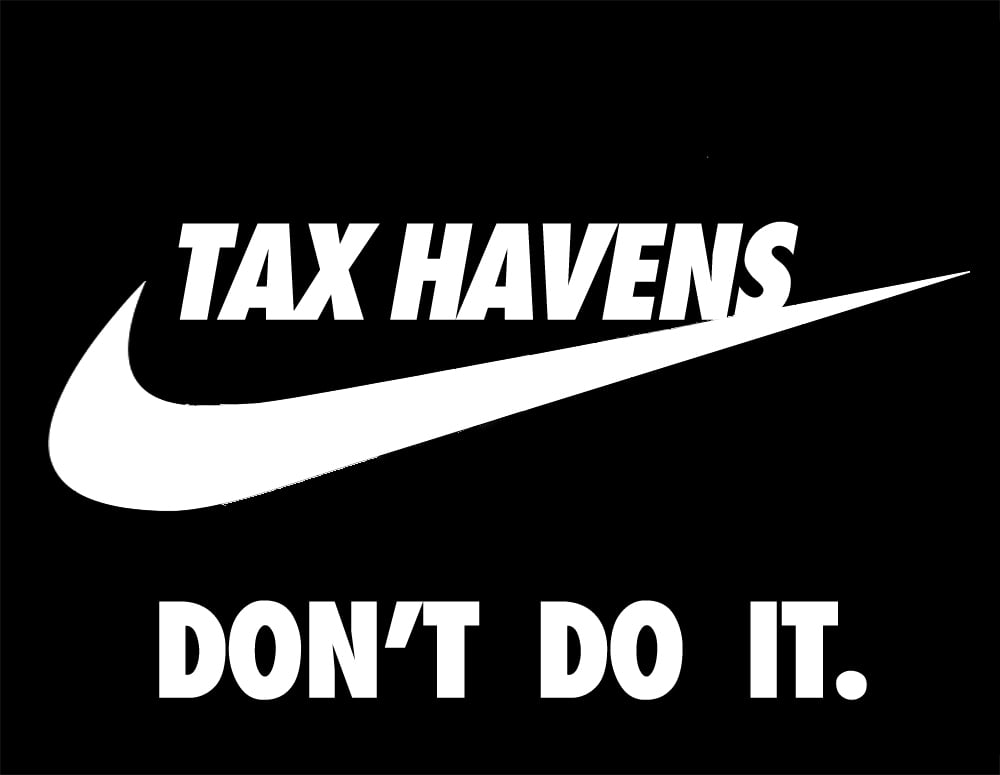A year and a half after the release of the Panama Papers, a new set of data leaks, the Paradise Papersreleased by the International Consortium of Investigative Journalists (ICIJ) provides important new information on the tax dodging of wealthy individuals as well as multinational corporations.
The leaked data, about 13.4 million files in total, exposes the tax avoidance schemes and strategies of wealthy and powerful individuals, as well as large corporations. More than 7 million of the files were obtained from the offshore law firm Appleby. The 119-year-old firm is a leading member of the global network of lawyers, accountants, bankers and other operatives who set up and manage offshore companies and bank accounts for clients who want to avoid taxes or keep their finances under wraps.
It is no secret that corporations like Nike and Apple are holding billions of dollars offshore for tax avoidance purposes, but the Paradise Papers give us a deeper look into what these tax avoidance schemes look like, and show that Apple’s leadership has aggressively moved to reinvent these schemes while simultaneously proclaiming their innocence.
Apple finds shelter in Jersey
In 2013, Apple chief executive Tim Cook testified before the U.S. Senate Subcommittee on Investigations that, “We pay all the taxes we owe, every single dollar.” He was testifying to the revelation that Apple avoided tens of billions of dollars in taxes by shifting profits into Irish subsidiaries.
After Irish lawmakers indicated interest in eliminating the so called “Double Irish strategy,” through which a company can collect profits through one subsidiary with Irish tax residence and shift the profits to a second Irish subsidiary with tax residency in a low-tax haven, Apple’s leadership worried that the days were numbered for its longtime Irish tax avoidance scheme. They apparently did not need to worry too much because last-minute lobbying efforts by other interested corporations protected Apple’s tax avoidance through a grandfather clause for multinationals that (like Apple) already had these structures in place at the end of 2014.
From the same testimony in 2013, Tim Cook commented that Apple doesn’t “depend on tax gimmicks…We don’t stash money on some Caribbean island.” The Paradise Papers reveal that Apple went shopping for a new place to set up a new tax haven subsidiary after the hearing in 2013 by issuing a questionnaire to 14 of Appleby’s offices consisting of questions such as, “Are there any developments suggesting that the law may change in an unfavorable way in the foreseeable future”, and asking to, “Confirm that an Irish company can conduct management activities…without being subject to taxation in your jurisdiction.”
This questionnaire was apparently sent to the governments of Bermuda, the Cayman Islands and the Bahamas, which suggests that if they truly don’t stash money on a Caribbean island, it’s only because those Caribbean islands couldn’t guarantee as good a tax deal as Jersey could. Jersey charges little to no taxes on corporate profits, making it a great place to help store a chunk of the estimated $252.3 billion in profits offshore on which Apple has not paid a dime in U.S. taxes.
Shortly after the Paradise Papers leaked, Apple released a statement claiming “Apple pays billions of dollars in taxes to the US at the statutory 35 percent rate on investment income from its overseas cash.” In reality, it is estimated that Apple pays a miniscule 3.8 percent tax rate on its offshore profits through aggressive tax avoidance, far from the current U.S. rate of 35 percent that they so boldly claim they pay.
Apple tops the list of Fortune’s Most Admired Companies for 2017, but clearly Apple does not have the same admiration for its consumers that pick up the tab of the taxes they aggressively avoid.
Nike sets sail for the Netherlands
Prior to 2014, the sportswear giant Nike’s trademark Swoosh design as well as other trademarks were owned by a Bermudan subsidiary under the name Nike International Ltd. The subsidiary could charge royalty fees for use of the logo in Europe, essentially shifting billions of dollars away from the continent to the small island of Bermuda where the profits were taxed at a rate of 0 percent. Nike was able to do this despite having no employees or offices in Bermuda.
In 2014, Nike realized that it could continue to have trademark payments flow through its European headquarters with little or no tax. As a result, the Swoosh and other trademarks were moved on paper from the Bermudan Nike International Ltd. to a new Dutch subsidiary under the name Nike Innovate CV. If a CV is set up carefully, multinationals can use it to escape taxes both in the Netherlands and elsewhere.
Nike earned more than $10 billion in U.S. profits from 2008 to 2015, but only paid 18.6 percent in U.S. federal taxes during this time. As of 2016, Nike had $12.2 billion in offshore profits, on which it would owe $4.1 billion in taxes if those profits were repatriated to the U.S.
While it is already clear that offshore tax avoidance is a massive problem, the Paradise Papers bring new attention to the lengths that major corporations are willing to go to blow off their tax obligations. Congress has the power to crack down on offshore tax avoidance, but unfortunately, the tax plan being debated in the House of Representatives right now would make the tax avoidance problem much worse, not better.





